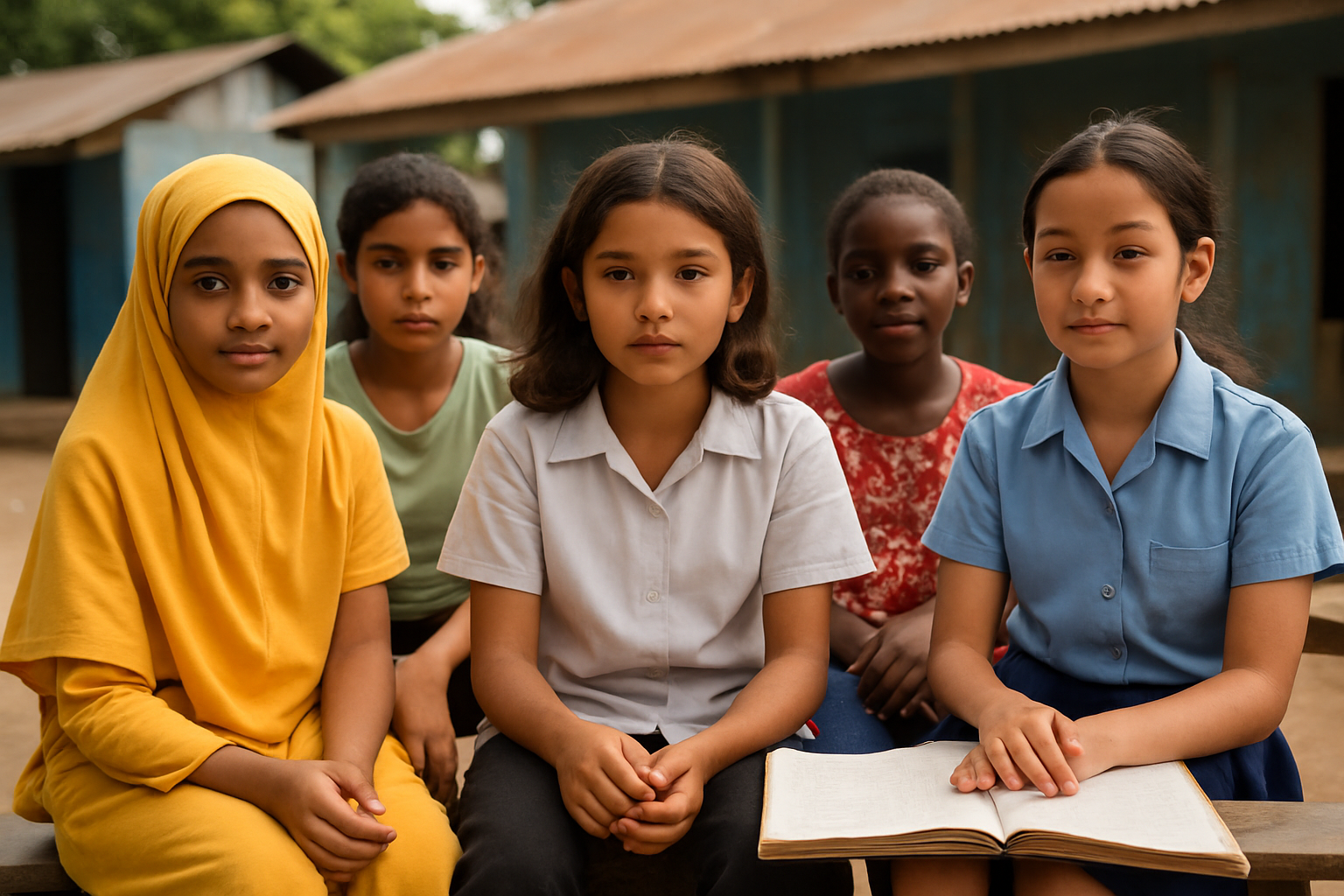More than 130 million girls around the world are out of school. That number isn’t just a statistic — it’s a warning. A quiet, global erasure of futures that should have been filled with choice, education, and freedom.
From the moment they’re born, many girls are placed on a path not of their choosing. They are taken out of school, given away in marriage, expected to serve before they can dream. Their worth is measured not by what they could become — but by how well they obey.
When Education Isn’t an Option
According to UNICEF (2023), over 12 million girls are married before the age of 18 each year. Some are as young as 10. In many countries, marriage legally ends a girl’s right to an education. School becomes a memory. Survival becomes the assignment.
Even in places where child marriage is outlawed, other barriers remain. Long distances to schools, unsafe travel, lack of menstrual hygiene access, and the heavy burden of unpaid domestic labor all send girls a message: you don’t belong in the classroom. And each of those barriers is not accidental — they are symptoms of a system that deprioritizes girls’ futures at every level.
The Price of Being Left Behind
Education is not just about literacy. It’s about power.
And when millions of girls are excluded from education, the consequences ripple outward. Entire communities lose leaders, economies shrink, innovation stalls, and inequality calcifies. The impact is generational — a stolen education today leads to fewer opportunities for her children tomorrow, continuing the cycle of poverty and dependence.
Why Gender Equality Isn’t Just Idealism
The United Nations (2023) calls gender equality a necessary foundation for a peaceful, prosperous, and sustainable world. Yet the systems built around us still act as if girls are expendable. They are treated as a resource to be managed, not as human beings with the right to self-determination.
These are not isolated tragedies. They are the result of global neglect — of policy decisions, social norms, and legal frameworks that quietly agree: girls can wait. But every day a girl waits is a day of learning lost, a skill unbuilt, a dream delayed — and in many cases, a life path permanently altered.
Because It Matters
A girl’s education is not a gift. It’s a right. And when that right is stolen, it is not just her loss — it is all of ours. Societies with higher levels of girls’ education have lower rates of child marriage, stronger economies, healthier families, and greater political stability.
If we want a just world, we cannot afford to keep treating girls’ futures as optional. We must start treating them as sacred. Because gender equality is not just a slogan — it’s a survival strategy. And the first step is simple: keep girls in school.

